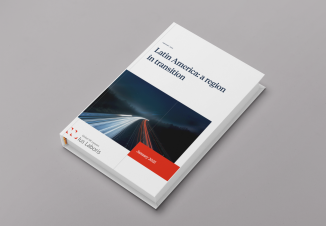
The new pension Law was published on 27 March 2025 and seeks, among other things, to improve the recoverability of unpaid pension contributions owed by employers to their workers (known as pension debts) through a more efficient and coordinated collection system. The changes include a new centralised pension collection system, called the Single Contribution Collection System (SUUC); interest payments that compensate workers for the lost performance of the pension fund; enhanced penalties and fines for non-compliance; and a new cost scheme.
Taken together, the reforms represent a significant change to the current pension framework in Chile and employers will need to adapt to a system that promotes greater traceability, control, and stricter pension compliance. In this article, we set out the key parts of the reforms so that employers can clearly understand the scope of the upcoming changes and their potential impact.
Today, the collection of pension contributions in Chile operates under a decentralised model – each fund administrator separately pursues unpaid pension contributions, often with varying intensity. This can result in judicial overload and fragmented efforts that often end up discouraging the collection of unpaid contributions. With the introduction of the SUUC, a more coordinated and efficient collection model among entities is proposed, seeking to improve the recovery of unpaid contributions through centralised management and greater oversight.
Starting from 1 June 2026, each fund administrator (or AFPs), for example, will no longer file claims for pensions debts separately. Instead, ‘pre-trial collection’ (the initial phase of debt recovery, occurring before any legal proceedings are initiated in court) will be the responsibility of the General Treasury of the Republic, and the judicial phase (where pre-trial collection efforts fail and the debt remains unpaid) will be assumed by the private entity awarded that function through a public tender.
For employers, this represents a significant change in the management and control of pension debts, and a greater likelihood of facing more serious and effective collection actions from agencies. This emphasises the importance of employers correctly paying their employees’ pension contributions.
Another change introduced by the new Law is the method of calculating the adjustments and interest applicable to unpaid contributions. Starting from 1 September 2025, the following guiding principle will apply: the interest on pension debt must reflect, at a minimum, “the effective profitability of the fund in which the worker was enrolled at the time the obligation accrued.”
In other words, the model based solely on the current interest rate in Chile will be replaced by a dual model, where the higher of that interest rate and the actual profitability of the fund or the severance fund (as applicable) will be applied. This modification transforms interest from a punitive tool into an effective compensation mechanism for workers. The new mechanism seeks to compensate workers for the loss of capitalisation resulting from an employer’s failure to pay their pension contributions.
It should also be noted that the new collection system is not limited to unpaid pension contributions. It will also include legal contributions and fines imposed by regulatory agencies, such as the Superintendency of Pensions and the Social Security Institute (IPS). This means that employers will not only have to face the collection of pension debt in the strictest sense, but also the penalties resulting from non-compliance, which increases the economic and legal impact of the new model.
The last of the key elements introduced by the new pension Law is the change in the distribution of pre-trial collection costs. Traditionally, these expenses were borne by the employer as part of the debt. Under the new model, these costs will be absorbed exclusively by the pension fund administrators, unemployment insurance fund administrators and IPSs, which must cover the services provided by the Treasury or the mandated entity.
This change is far from just an accounting modification. It alters the incentive system and reconfigures the relationship between the system’s stakeholders. Pension entities will now be more selective in contracting collection services and will be motivated to demand efficiency and recoverability standards, given that they directly bear the cost of the process’ failure or success.
For employers, this change could result in a more demanding and proactive collection system, with less room for formal errors and faster judicial processing.
The implementation of the SUUC represents a structural change in the way pension obligations are monitored and enforced in Chile. With a more coordinated, centralised, and technically demanding architecture, the system will seek to correct historical shortcomings of the previous system, such as inefficient debt collection and the limited recovery of funds owed to workers.
For employers, this will mean setting a new standard for pension compliance. They will have to:


